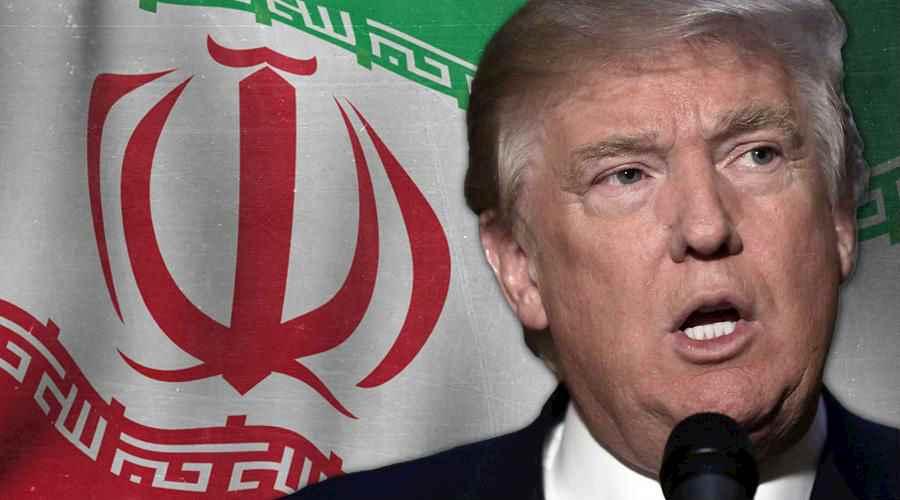Iran was one of the first countries to react to the executive order issued by US President, Donald Trump, on January 27, 2017, temporarily banning citizens from seven Middle Eastern countries from entering the United States. Iran, named as one of the seven, openly criticized the decision and took reciprocal measures, banning the entry of U.S. citizens into its borders. Iran’s reaction is not only based on how this ban affects the nuclear deal, but on how the ban may upset the delicate Iranian political equilibrium that is currently in the process of restructuring.
Some political circles in Iran believe that the executive order is a violation of the nuclear deal reached between Iran and the p5+1 group in July 2015. According to Tehran, the deal states that there should be no hostile action between any of the parties, rather there should be dialogue and negotiations. Several members of the Iranian Parliament, including Hussein Naqvi Hussaini, the Speaker of the Committee of National Security Affairs in the Iranian Parliament, have stressed this point.
The executive order limits the options available to President Hassan Rouhani, as several of his own government officials were the first to reject the new US decision. Other state officials discussed Iran’s possible options and offered implicit threats of a standoff.
Foreign Minister Mohammad Javad Zarif expressed the government’s position on January 29, 2017, claiming the US executive order is, “a gift to extremists.” The warning of extremism in this case is not limited to territorial and violent terrorist groups, but extends to the rise of radical right-wing trends globally, including Iran itself.
According to this viewpoint, the conservative fundamentalist current will take advantage of the situation by pressuring Rouhani and the moderates, all the while bolstering its control over decision-making institutions in the near future. This camp is currently trying to convince Supreme Leader, Ali Khamenei, to appoint a known radical figure as chairman of the Expediency Discernment Council to replace the late Hashemi Rafsanjani, who died on January 8, 2017. This appointment will be a true test of the political balance of power ahead of presidential elections on May 19, 2017.
Implicit threats
Despite escalating disputes among major political factions inside Iran, Trump’s order could force these camps to collaborate and reach agreements on key political issues. Iran will need to collectively adapt to the new direction of the US foreign policy, particularly given that the executive order in question which could be seen as an escalation of tension against Tehran. The current U.S. administration is expected to push for a renegotiation of the nuclear deal. The Trump administration is further expected to call attention to Iran’s support of terrorism, a point of contention avoided by the previous administration, which was more interested in Iran’s commitment to the nuclear deal.
In response, Iran has started to hint at a possible escalation in tensions, in case Trump implemented any of the previously mentioned issues.
Accelerating enrichment
Even though Iran is trying to assert its commitment to the nuclear deal which limits uranium enrichment to first generation centrifuges and temporarily limits research on more advanced centrifuge systems, it is also keen on maintaining its ability to quickly restart its nuclear program, should nuclear experts be given the green light from senior leadership.
Abbas Araghchi, Chief Nuclear Negotiator and Deputy for Legal and International Affairs at the Iranian Foreign Ministry, gave a remarkable statement on January 29, 2017, saying that Iranian scientists had pumped gas in the strategic centrifuge, IR 8. He said that the IR 6 and IR 8 machines are a symbol of the country’s advances in science and technology, stressing that, “these machines are capable of enriching 24 times more uranium than the first-generation machines, IR 1.”
Iranian officials have affirmed their position to nuclear development in several statements. These officials warn that Iran is capable of restarting its nuclear activities if the agreement was breached, implying that Iran refuses to renegotiate the nuclear deal. On January 18, 2017, the director of the Atomic Energy Organization of Iran, Ali Akbar Salehi, stated that his country is not willing to make any amendments or renegotiate the nuclear deal. He went on to say that, “If Trump tears up the deal, Iran would restart its program in a way that will shock Americans.”
Developing missiles
In the meantime, Iran has taken other steps that have escalated the tensions further. On January 29, 2017, Brigadier General Hossein Salami, Deputy Commander of the Iranian Revolutionary Guards announced the development of ballistic missiles that are capable of hitting mobile targets. He emphasized that Iran is now one of the few countries with access to this technology. With this move, Iran has confirmed its commitment to developing its military capabilities. This is a serious concern for global powers, especially the US.
The U.S. Congress has recently imposed new sanctions due to Iran’s support of terrorism and advancing missile development. In response, the US called for a Security Council meeting to discuss Iran’s mid-range ballistic missile test on January 29, 2017.
In conclusion, one can assume that in the near future Iran might prepare for a standoff with Trump’s administration, potentially resurrecting the tense atmosphere which existed prior to the nuclear agreement. In response to the new administration, some radical currents inside Iran are once again proposing escalatory action if pressure is placed on Tehran. One option is blocking the Strait of Hormuz, however opposing currents inside Iran are warning this move may be too risky for the region, and for Iran’s national security and interests.


